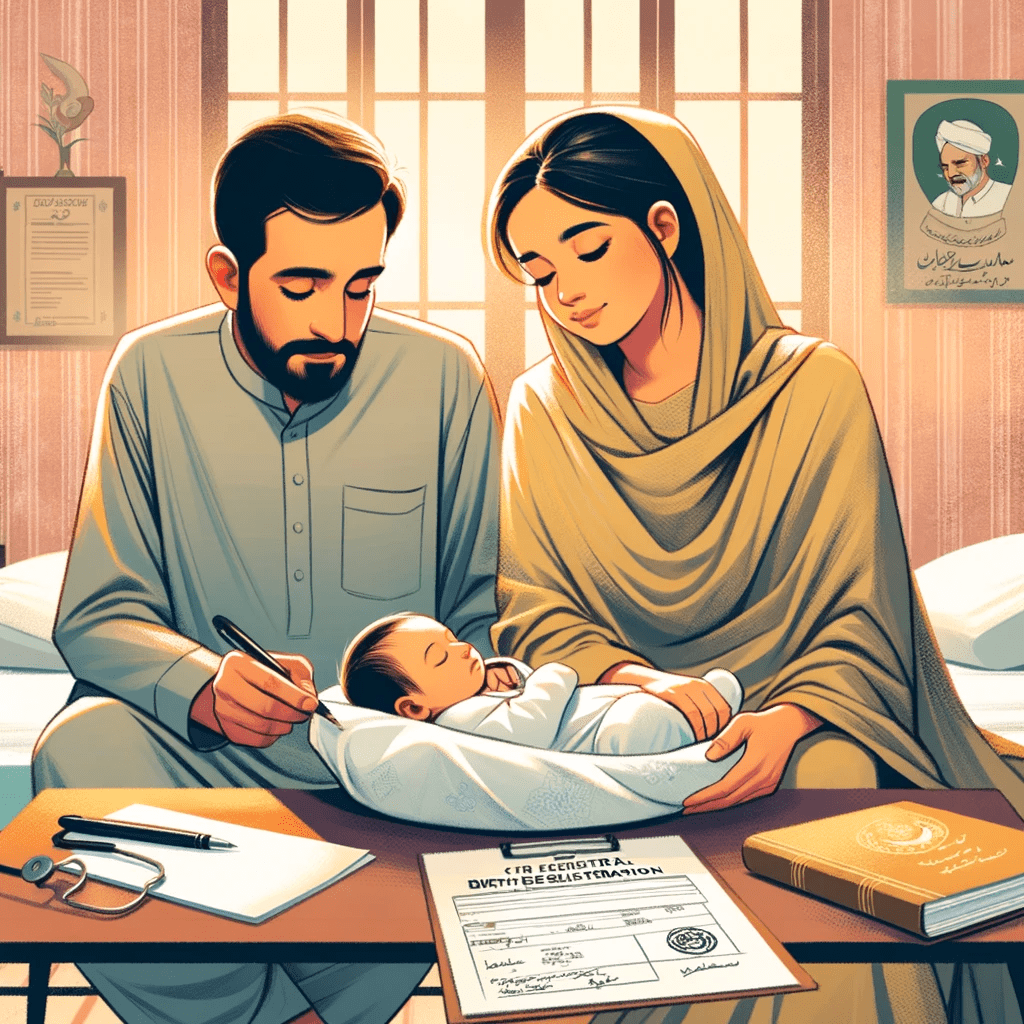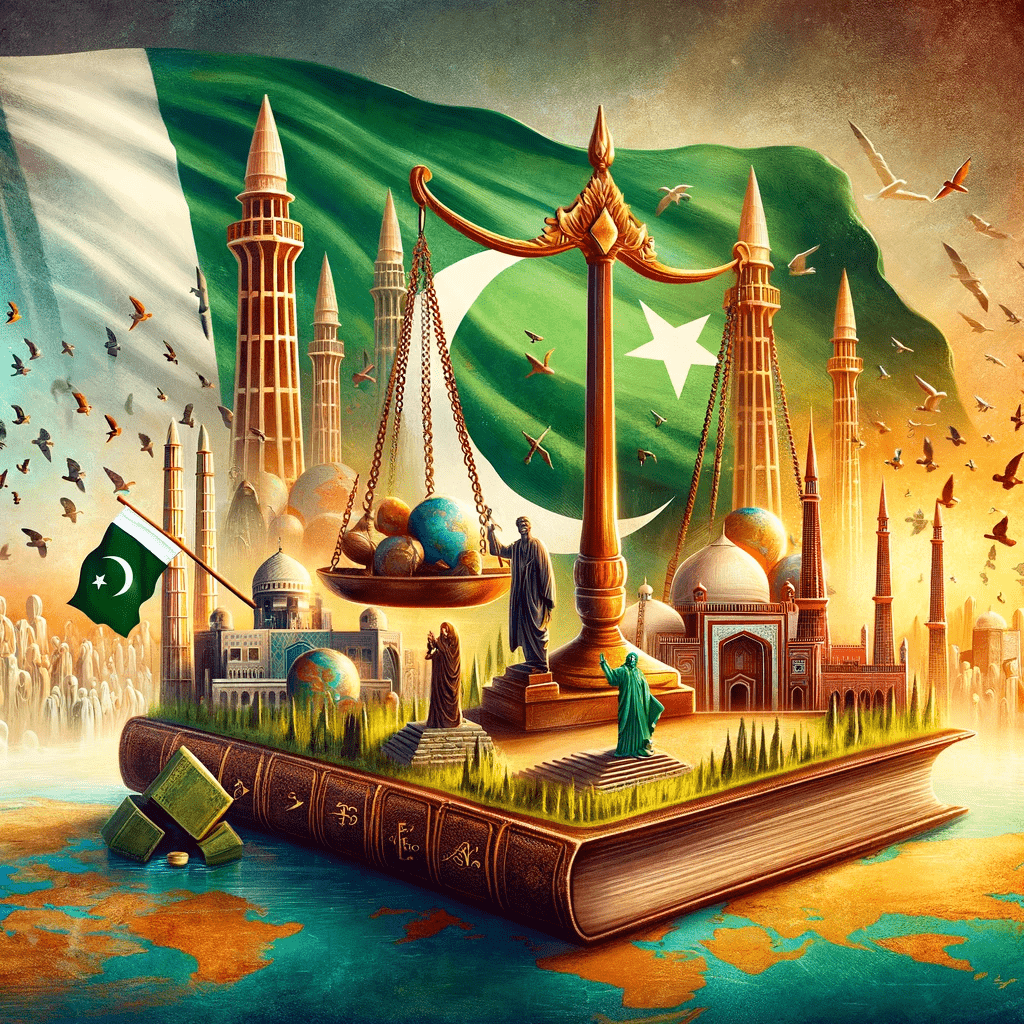Registering a childs birth in Pakistan for local and overseas Pakistanis Abroad
How to Register a Child’s Birth in Pakistan, Whether You Are in Pakistan or Abroad as an Overseas Pakistani Birth registration is a fundamental right of every child and serves as the first step towards establishing their legal identity. In Pakistan, the process of registering a child’s birth is governed by specific legal requirements, crucial for ensuring the child’s access to various rights and services. This registration is not only a statutory obligation for Pakistani citizens but also a crucial step in safeguarding the human rights and future of the child, enabling them to access education, healthcare, and later in life, employment, and voting rights. This article aims to demystify the birth registration process in Pakistan, providing clear and concise information for parents and guardians. Whether you are residing in Pakistan or living abroad as an Overseas Pakistani, understanding the procedure, required documentation, and legal implications of timely versus late registration is essential. We will explore the role of the Government of Pakistan and local authorities, such as Union Councils, and the National Database and Registration Authority (NADRA) in this process, ensuring you have all the necessary knowledge to fulfill this vital legal obligation. Legal Framework for Birth Registration in Pakistan In Pakistan, the legal framework governing the registration of a child’s birth is anchored in the National Database and Registration Authority (NADRA) Act of 2000, alongside local provincial laws. This framework mandates the registration of every birth within Pakistan, a critical step in ensuring a child’s legal identity and access to fundamental rights. Under this framework, the birth of a child must be registered within 60 days of birth. Failure to register within this period can lead to complications, including fines and potential difficulties in obtaining a Computerized National Identity Card (CNIC) in the future. However, provisions are available for late registration, subject to certain conditions and additional documentation. The responsibility for registering births lies with the local government bodies, specifically the Union Councils in urban areas and Tehsil or Town Municipal Administrations in rural areas. These bodies maintain a Birth Register, recording all births within their jurisdiction. For Pakistani citizens abroad, the respective Pakistani embassies or consulates handle birth registration, ensuring that the rights of children born to Pakistani nationals overseas are also safeguarded. The importance of this legal framework cannot be overstated. It not only provides a systematic approach to birth registration but also underlines the state’s commitment to recognizing and protecting the identity and rights of its youngest citizens, irrespective of where they are born. Step-by-Step Guide for Birth Registration in Pakistan Registering a child’s birth in Pakistan is a straightforward process, though it requires careful attention to detail. Here is a step-by-step guide to ensure that the registration is completed smoothly: Gather Required Documents: For Hospital Births: Official birth certificate issued by the hospital or maternity home. For Home Births: An affidavit from a local community leader or a member of the Union Council, confirming the birth. Parent’s Computerized National Identity Cards (CNICs). Marriage Certificate (or nikahnama) of the parents. Visit the Local Union Council or TMA Office: Within 60 days of the birth, visit the nearest Union Council, Town Municipal Administration (TMA), or Cantonment Board office, depending on your locality. In rural areas, the local government office or village council serves a similar purpose. Submission of the Birth Registration Form: Obtain a Birth Registration Form, known as ‘Form B’ (Locally referred to as “B Form”), from the respective office. Fill out the form with accurate details of the child, parents, and place of birth. Attach the required documents with the form. Verification and Processing: The submitted form and documents will undergo a verification process. Any discrepancies or missing information may require additional documentation or clarification. Issuance of Birth Certificate: Once verified, the office will issue a NADRA Birth Certificate, an official document recognizing the child’s identity. Ensure all details on the certificate are correct before leaving the office. Optional: Obtain a Child Registration Certificate (CRC): For a more comprehensive document, parents can apply for a Child Registration Certificate (CRC) from NADRA. This certificate is particularly useful for future educational and legal purposes. This process, while seemingly simple, is crucial in establishing a child’s legal identity and securing their rights as a citizen. Parents and guardians are encouraged to complete this process promptly to avoid any future administrative or legal complications. Registering a Child’s Birth from Abroad For Pakistani citizens living abroad, registering a child’s birth involves a slightly different process, but it remains a crucial step in ensuring the child’s legal rights. Here’s how Pakistani expatriates can navigate this process: Contact the Nearest Pakistani Embassy or Consulate: The first step is to get in touch with the nearest Pakistani embassy or consulate. They are equipped to guide Pakistani nationals through the birth registration process in their respective countries. Collection of Required Documents: A birth certificate issued by the local authorities in the country of birth. Parents’ Pakistani passports and CNICs. Marriage certificate of the parents. Any additional documents requested by the embassy, which may vary depending on the country. Filling Out the Registration Form: Obtain and fill out the ‘S-Form’ (Birth Registration Form) provided by the embassy or consulate. Ensure all the information provided is accurate and matches the details in the official documents. Submission and Verification: Submit the completed form along with all the necessary documents to the embassy or consulate. The embassy will verify the documents and may ask for additional information or clarification if needed. Processing by NADRA: Once the embassy or consulate has processed the application, it is forwarded to NADRA in Pakistan for further processing and issuance of the official birth certificate. Receipt of Pakistani Birth Certificate: After processing, the Pakistani birth certificate is issued by NADRA. Parents can collect the birth certificate from the embassy or consulate, or in some cases, it may be mailed to them. This procedure ensures that children of
Registering a childs birth in Pakistan for local and overseas Pakistanis Abroad Read More »
Information, Laws of Pakistan - Library


